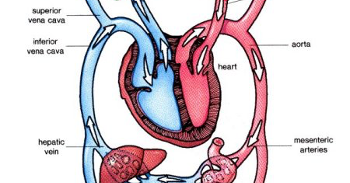2 Peter 3:8-10
But, beloved, do not forget this one thing, that with the Lord one day is as a thousand years, and a thousand years as one day. The Lord is not slack concerning His promise, as some count slackness, but is longsuffering toward us, not willing that any should perish but that all should come to repentance. But the day of the Lord will come as a thief in the night, in which the heavens will pass away with a great noise, and the elements will melt with fervent heat; both the earth and the works that are in it will be burned up.
God wants all the lost to be saved much more than you and I do:
- He (the Father) gave His Son to us and for us because He loved us – “For God so loved the world that He gave His only begotten Son, that whoever believes in Him should not perish but have everlasting life.” (John 3:16)
- He (the Son) laid aside His godhead and became one of us to live and die that we might have salvation – “But we see Jesus, who was made a little lower than the angels, for the suffering of death crowned with glory and honor, that He, by the grace of God, might taste death for everyone. For it was fitting for Him, for whom are all things and by whom are all things, in bringing many sons to glory, to make the captain of their salvation perfect through sufferings.” (Hebrews 2:9-10)
- He (the Holy Spirit) came to be with us at all times so God’s saving work will continue – “But you shall receive power when the Holy Spirit has come upon you; and you shall be witnesses to Me in Jerusalem, and in all Judea and Samaria, and to the end of the earth.” (Acts 1:8)
God loves the lost far more than you and I. After all, have we “in [our] struggle against sin … resisted to the point of shedding blood” (Hebrews 12:4)? I certainly haven’t. If God desires their salvation more than we, then we don’t need to spend all our time pleading with Him to act. Yes we pray for the lost, but is there more we can – and should – do?
Why doesn’t revival happen? If God loves the lost so much, why doesn’t salvation sweep over our world like a tidal wave, drowning everyone in grace and mercy?
“Then He went out from there and came to His own country, and His disciples followed Him. … ‘ Is this not the carpenter, the Son of Mary, and brother of James, Joses, Judas, and Simon? And are not His sisters here with us?’ So they were offended at Him. But Jesus said to them, ‘A prophet is not without honor except in his own country, among his own relatives, and in his own house.’ Now He could do no mighty work there, except that He laid His hands on a few sick people and healed them.” (Mark 6:1-5).
The word translated as “could do” can mean either “able to” or “possible to”. But we know that God is not limited in His actions by anything or anyone; the same Psalm from which we sing “Non nobis, Domine” tells us, “But our God is in heaven; He does whatever He pleases.” (Psalm 115:3). Jesus was not powerless to heal – some were healed in His hometown – but He did limit Himself: He did not ignore the choices of their hearts. Those who were willing He healed; those who were not, which was by far the majority in His home town, He respected their attitude toward Him and moved on. Revival doesn’t happen because the lost don’t desire it!
What does this tell us? If you have a heart for the lost, if you are called to minister to the lost, or if you have loved ones who are lost and do not know the Lord Jesus Christ – what should you do? What did Jesus do?
He did not come in judgment; He did not come and overrule their hearts. He did not come to “scare the hell” out of people so they’d accept Him as their insurance policy. He emptied Himself, humbled Himself, and loved to the point of exhaustion. He focused His ministry on the hearts and minds of those in need, and followed faithfully what He saw the Father doing in each of them. He always offered, always knocked, but never forced His way in. Even with His followers He always called but never pursued, never bribed, never forced. He was always available whenever they needed Him, anytime they turned and looked toward to Him. Jesus was longsuffering.
The day of the Lord will come as a thief in the night. “Therefore, since all these things will be dissolved, what manner of persons ought you to be in holy conduct and godliness, looking for and hastening the coming of the day of God, because of which the heavens will be dissolved, being on fire, and the elements will melt with fervent heat?” (2 Peter 3:11-13).
What manner of person? Be like Jesus. “Let this mind be in you which was also in Christ Jesus, who, being in the form of God, did not consider it robbery to be equal with God, but made Himself of no reputation, taking the form of a bondservant, and coming in the likeness of men. And being found in appearance as a man, He humbled Himself and became obedient to the point of death, even the death of the cross.” (Philippians 2:5-8).
Love until it hurts … then love some more. Not with your love, not with human love – that’s not enough and its effect is fleeting. Love with the love of Christ Jesus: His love will overcome. You must first be filled with His love, then you will overflow with it. “Greater love has no one than this, than to lay down one’s life for his friends.” (John 15:13).
Word of God: speak!
Non nobis Domine+
by Fr. Dana Jackson









